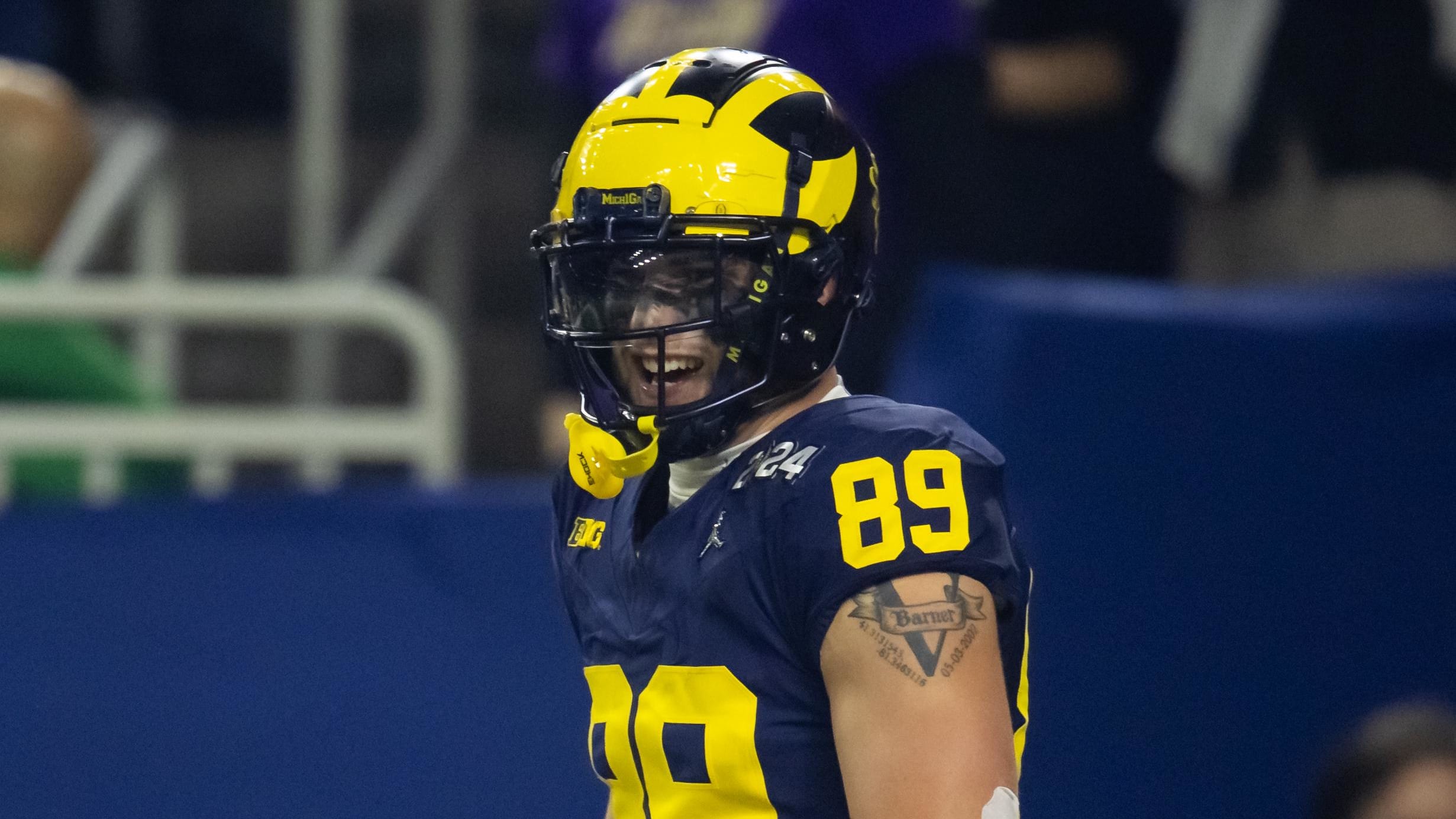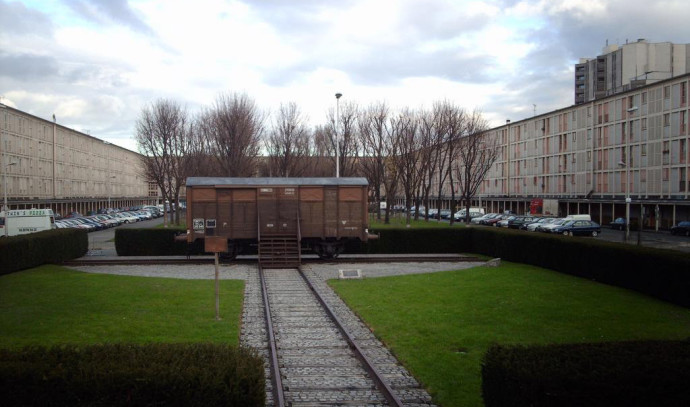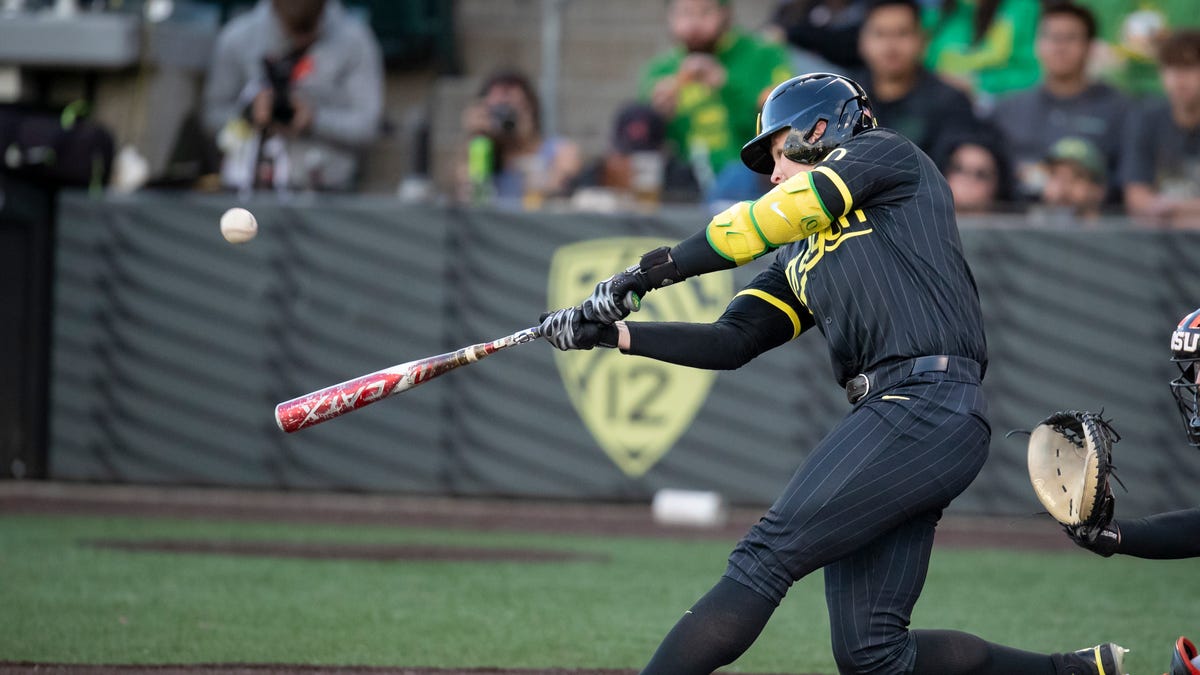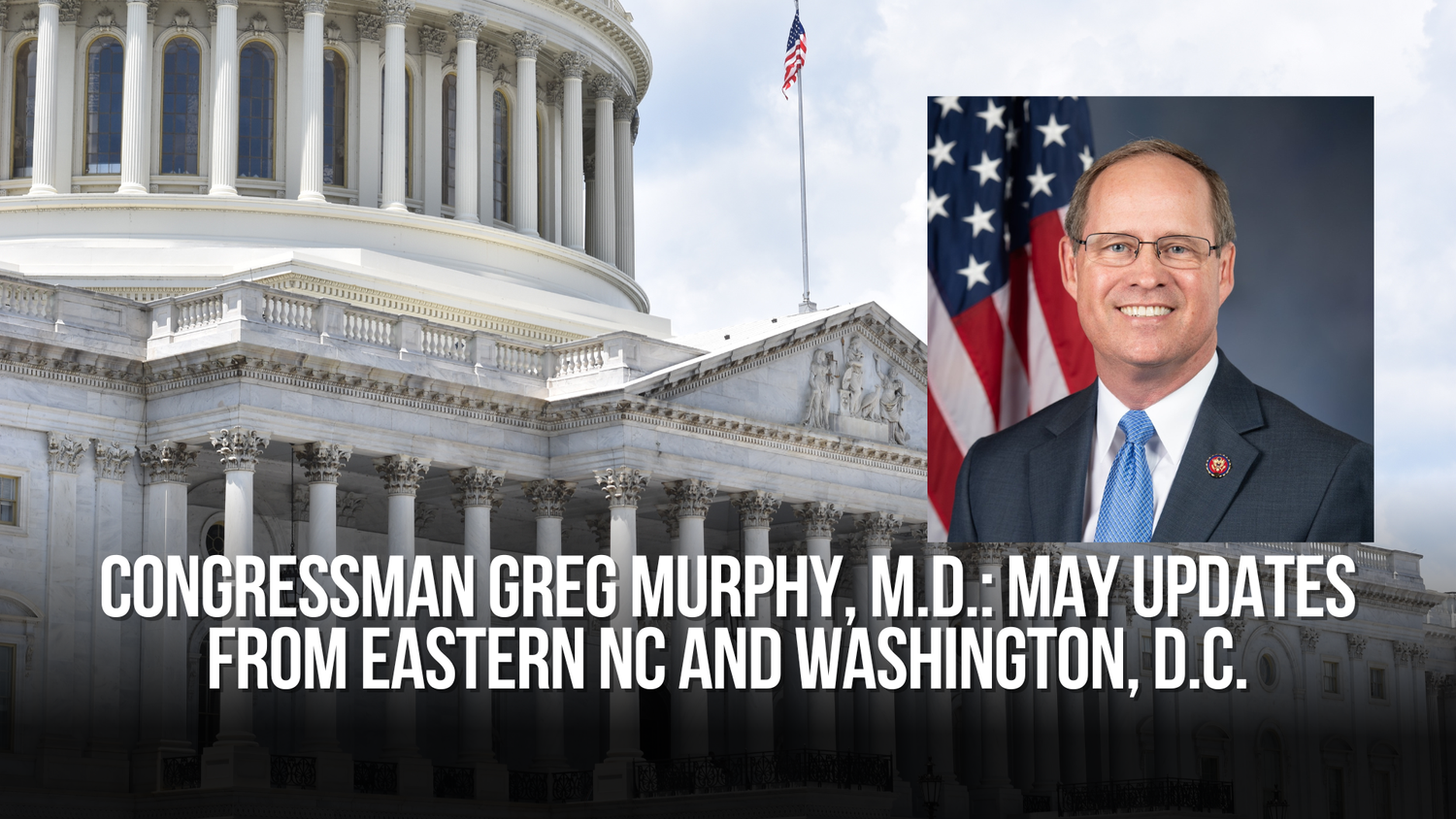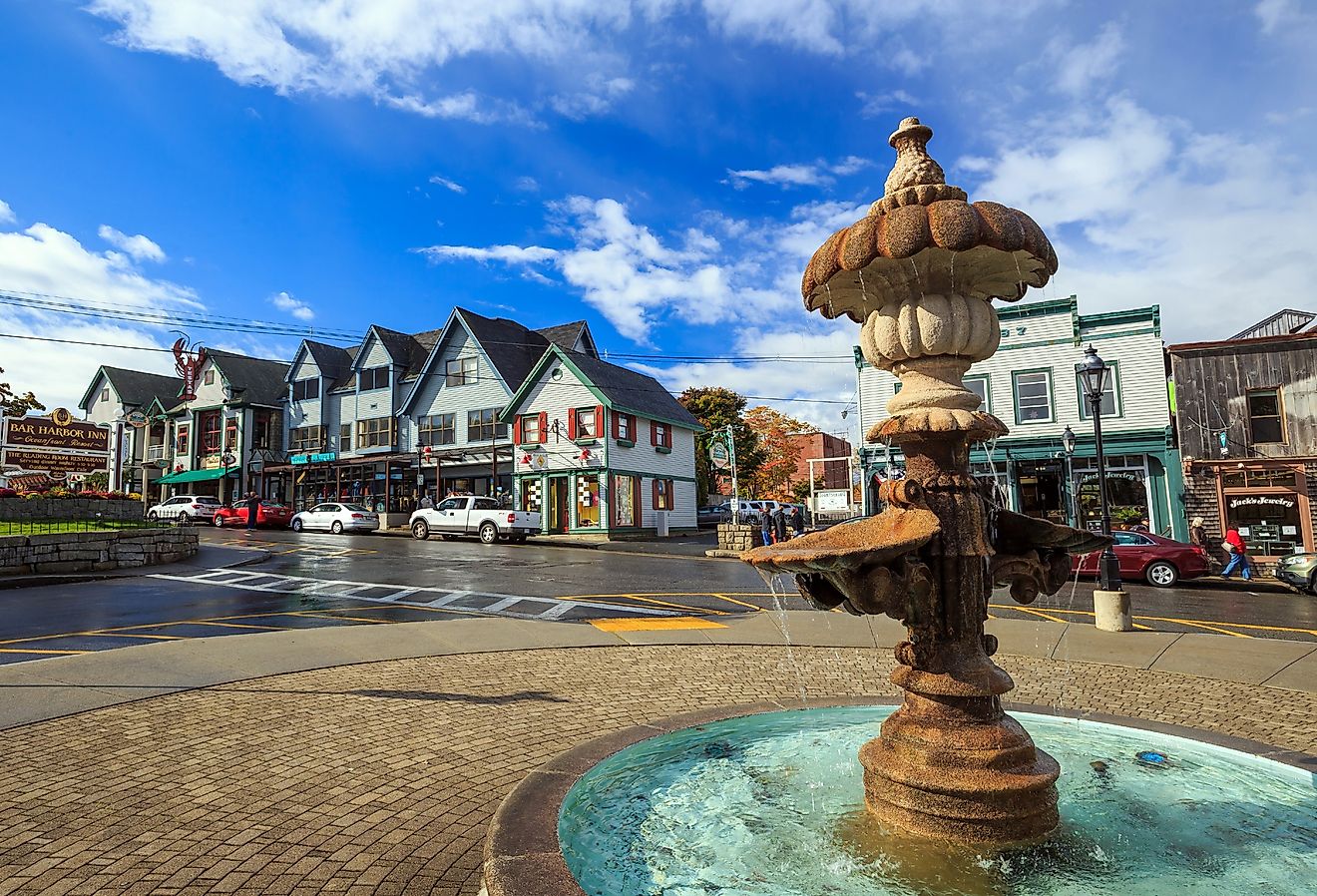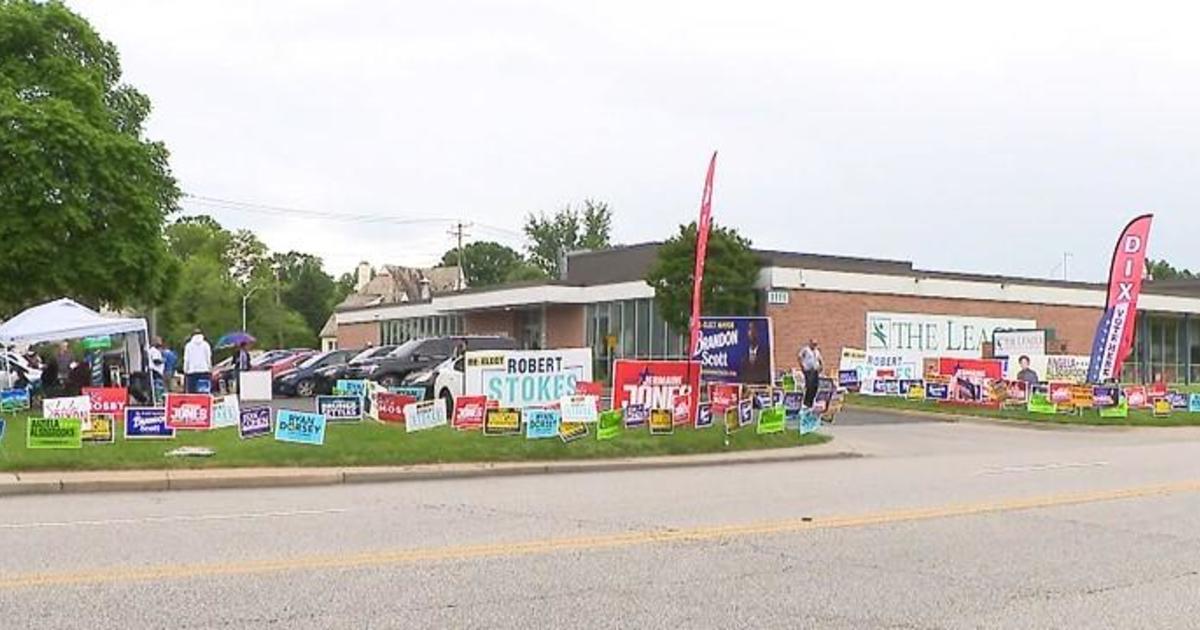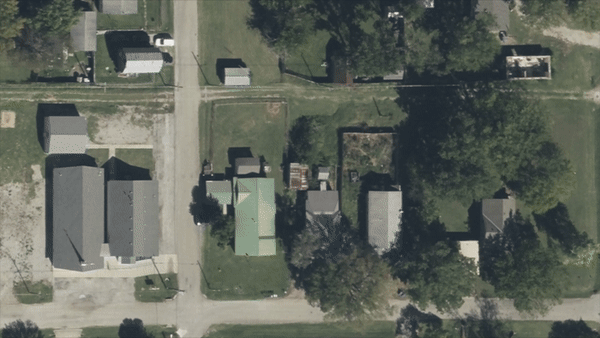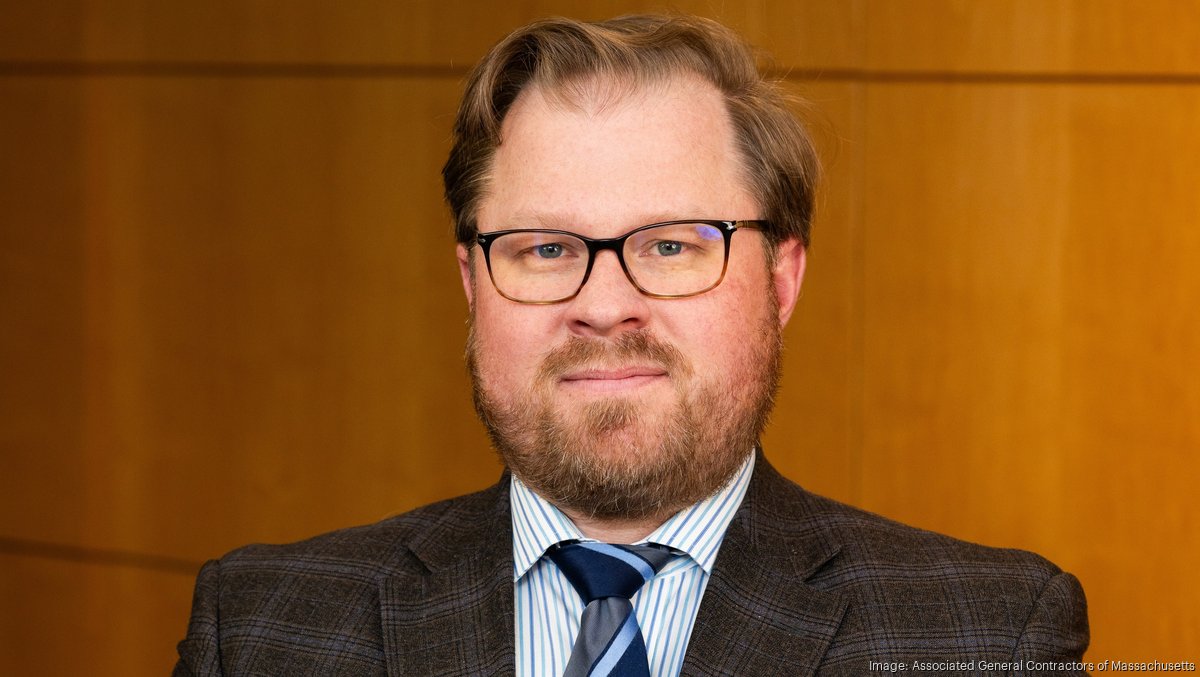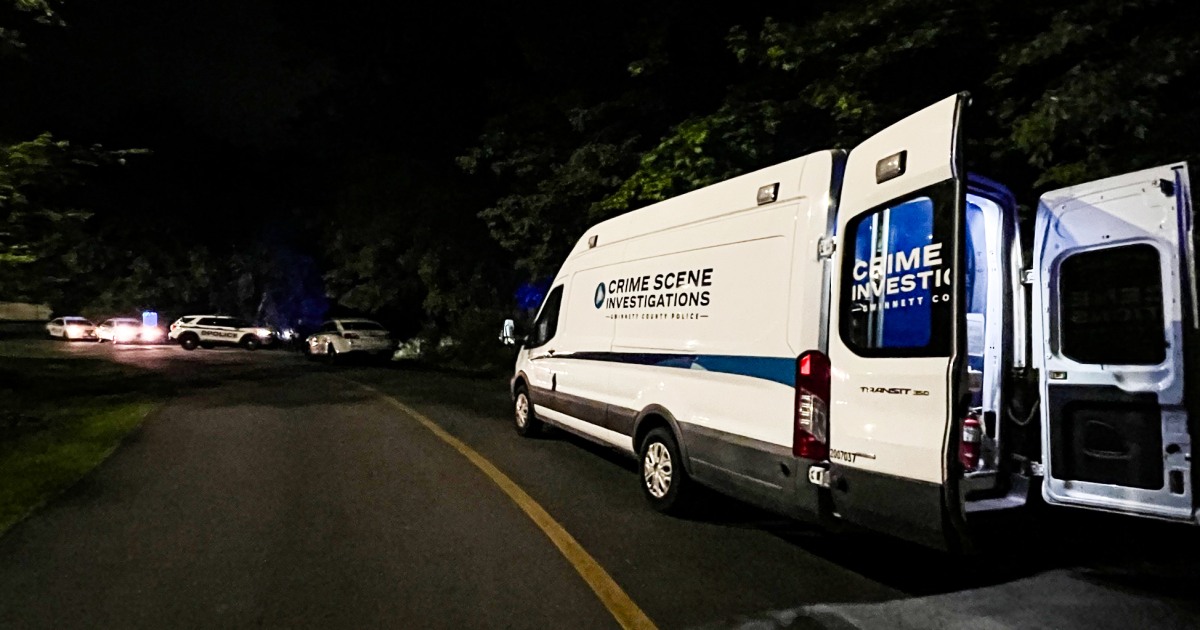Washington, D.C
Washington, DC Tops List Of 'America's Hardest-Working Cities'
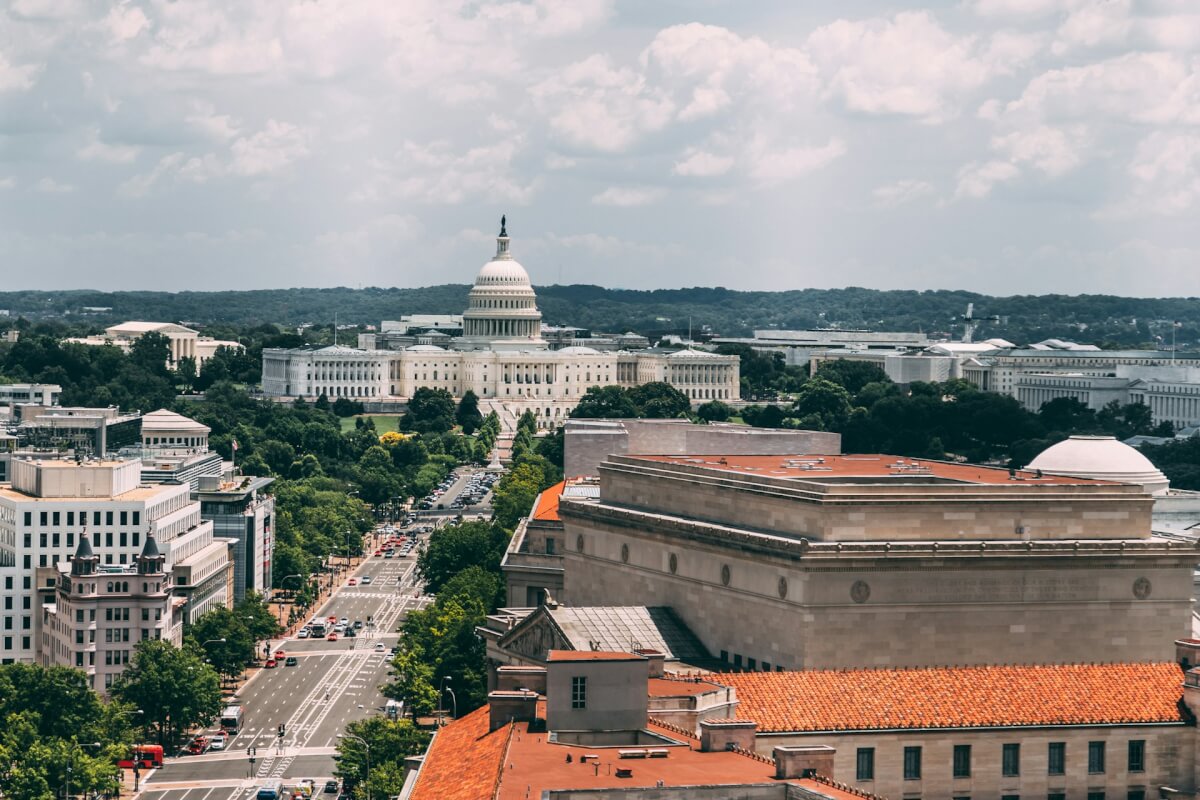
In a nation known for its strong work ethic, some cities stand out as shining examples of the American spirit. After all, work is the backbone of the American dream. A recent study by WalletHub set out to identify the hardest-working cities in the United States, comparing 116 of the most populated cities across 11 key metrics. Who came out on top? Results point to our nation’s capital, Washington, DC!
The study offers a fascinating insight into the work habits of Americans and the factors that contribute to a city’s overall work ethic. Conducted in February 2024, researchers looked at two main dimensions: “Direct Work Factors” and “Indirect Work Factors.” Direct Work Factors, which accounted for 80% of the total score, included metrics such as average workweek hours, employment rate, and the share of households where no adults work. Indirect Work Factors, which made up the remaining 20%, considered aspects like average commute time, the share of workers with multiple jobs, and annual volunteer hours per resident.
With that said, let’s take a look at the full list!
Hardest-Working Cities in the U.S.
| Overall Rank* | City | Total Score | Direct Work Factors Rank | Indirect Work Factors Rank |
|---|---|---|---|---|
| 1 | Washington, DC | 76.97 | 4 | 9 |
| 2 | Irving, TX | 76.39 | 1 | 46 |
| 3 | Cheyenne, WY | 76.15 | 7 | 27 |
| 4 | Virginia Beach, VA | 75.79 | 8 | 11 |
| 5 | Anchorage, AK | 75.55 | 3 | 85 |
| 6 | Norfolk, VA | 75.27 | 9 | 14 |
| 7 | Dallas, TX | 75.21 | 5 | 32 |
| 8 | San Francisco, CA | 74.67 | 6 | 40 |
| 9 | Denver, CO | 73.93 | 12 | 22 |
| 10 | Austin, TX | 73.82 | 2 | 79 |
| 11 | Sioux Falls, SD | 73.56 | 11 | 74 |
| 12 | Corpus Christi, TX | 73.44 | 10 | 76 |
| 13 | Plano, TX | 72.84 | 14 | 38 |
| 14 | Fort Worth, TX | 72.14 | 16 | 30 |
| 15 | Arlington, TX | 72.12 | 15 | 31 |
| 16 | Chesapeake, VA | 71.85 | 30 | 7 |
| 17 | Aurora, CO | 71.68 | 24 | 16 |
| 18 | Laredo, TX | 70.98 | 23 | 62 |
| 19 | Garland, TX | 70.90 | 25 | 21 |
| 20 | Nashville, TN | 70.52 | 13 | 77 |
| 21 | Manchester, NH | 70.24 | 34 | 35 |
| 22 | Omaha, NE | 70.00 | 36 | 25 |
| 23 | Raleigh, NC | 69.92 | 29 | 29 |
| 24 | Charlotte, NC | 69.89 | 33 | 24 |
| 25 | Chandler, AZ | 69.74 | 20 | 64 |
| 26 | Scottsdale, AZ | 69.70 | 17 | 78 |
| 27 | Houston, TX | 69.24 | 26 | 51 |
| 28 | Gilbert, AZ | 68.75 | 31 | 50 |
| 29 | Tampa, FL | 68.55 | 19 | 97 |
| 30 | Boston, MA | 68.45 | 49 | 3 |
| 31 | Fremont, CA | 68.22 | 37 | 33 |
| 32 | Seattle, WA | 68.05 | 51 | 6 |
| 33 | Atlanta, GA | 67.86 | 32 | 69 |
| 34 | Portland, ME | 67.72 | 40 | 57 |
| 35 | Colorado Springs, CO | 67.43 | 52 | 17 |
| 36 | Oklahoma City, OK | 66.95 | 22 | 101 |
| 37 | Indianapolis, IN | 66.91 | 47 | 18 |
| 38 | St. Petersburg, FL | 66.78 | 28 | 100 |
| 39 | Orlando, FL | 66.71 | 21 | 107 |
| 40 | Jacksonville, FL | 66.42 | 18 | 109 |
| 41 | Lubbock, TX | 66.40 | 39 | 98 |
| 42 | Baltimore, MD | 66.38 | 71 | 2 |
| 43 | San Antonio, TX | 66.14 | 35 | 86 |
| 44 | Salt Lake City, UT | 66.02 | 66 | 5 |
| 45 | Phoenix, AZ | 65.90 | 41 | 54 |
| 46 | Durham, NC | 65.80 | 43 | 88 |
| 47 | Fargo, ND | 65.52 | 48 | 63 |
| 48 | Little Rock, AR | 65.32 | 38 | 115 |
| 49 | Kansas City, MO | 65.25 | 50 | 41 |
| 50 | San Jose, CA | 65.19 | 42 | 55 |
| 51 | Miami, FL | 64.91 | 27 | 114 |
| 52 | Oakland, CA | 64.67 | 53 | 42 |
| 53 | Boise, ID | 64.18 | 63 | 48 |
| 54 | Portland, OR | 64.17 | 83 | 1 |
| 55 | El Paso, TX | 64.13 | 64 | 43 |
| 56 | Jersey City, NJ | 63.89 | 58 | 37 |
| 57 | Louisville, KY | 63.82 | 57 | 34 |
| 58 | Honolulu, HI | 63.72 | 46 | 110 |
| 59 | Tulsa, OK | 63.57 | 45 | 111 |
| 60 | Billings, MT | 63.48 | 62 | 66 |
| 61 | Minneapolis, MN | 62.77 | 77 | 13 |
| 62 | Des Moines, IA | 62.75 | 69 | 67 |
| 63 | Lexington-Fayette, KY | 62.52 | 54 | 102 |
| 64 | Wichita, KS | 62.36 | 56 | 105 |
| 65 | Glendale, AZ | 62.34 | 70 | 47 |
| 66 | Jackson, MS | 62.11 | 60 | 106 |
| 67 | San Diego, CA | 61.95 | 59 | 80 |
| 68 | Columbus, OH | 61.94 | 65 | 59 |
| 69 | Irvine, CA | 61.62 | 55 | 89 |
| 70 | Fort Wayne, IN | 61.56 | 68 | 93 |
| 71 | Hialeah, FL | 61.44 | 44 | 112 |
| 72 | Santa Ana, CA | 61.29 | 61 | 87 |
| 73 | Lincoln, NE | 61.25 | 82 | 28 |
| 74 | Mesa, AZ | 61.13 | 72 | 61 |
| 75 | Long Beach, CA | 60.69 | 74 | 65 |
| 76 | St. Louis, MO | 60.65 | 81 | 36 |
| 77 | St. Paul, MN | 60.56 | 85 | 12 |
| 78 | Anaheim, CA | 60.49 | 73 | 75 |
| 79 | Reno, NV | 60.45 | 75 | 90 |
| 80 | Los Angeles, CA | 60.14 | 76 | 60 |
| 81 | Chula Vista, CA | 60.11 | 78 | 53 |
| 82 | Winston-Salem, NC | 59.59 | 79 | 92 |
| 83 | Henderson, NV | 59.19 | 80 | 71 |
| 84 | Philadelphia, PA | 58.52 | 98 | 8 |
| 85 | Birmingham, AL | 58.29 | 67 | 108 |
| 86 | North Las Vegas, NV | 58.14 | 84 | 49 |
| 87 | Chicago, IL | 57.71 | 89 | 39 |
| 88 | Las Vegas, NV | 57.28 | 88 | 58 |
| 89 | Cincinnati, OH | 57.23 | 97 | 20 |
| 90 | Bakersfield, CA | 56.29 | 93 | 72 |
| 91 | Albuquerque, NM | 56.16 | 92 | 84 |
| 92 | Memphis, TN | 55.91 | 91 | 73 |
| 93 | Riverside, CA | 55.36 | 94 | 68 |
| 94 | New Orleans, LA | 55.26 | 87 | 96 |
| 95 | Greensboro, NC | 55.08 | 96 | 94 |
| 96 | Sacramento, CA | 54.96 | 90 | 95 |
| 97 | Wilmington, DE | 54.60 | 95 | 81 |
| 98 | Pittsburgh, PA | 54.41 | 104 | 19 |
| 99 | New York, NY | 53.70 | 101 | 44 |
| 100 | Baton Rouge, LA | 53.43 | 100 | 91 |
| 101 | Madison, WI | 52.98 | 99 | 104 |
| 102 | Milwaukee, WI | 52.85 | 108 | 10 |
| 103 | Charleston, WV | 52.61 | 86 | 116 |
| 104 | Stockton, CA | 52.28 | 106 | 15 |
| 105 | Tucson, AZ | 51.94 | 102 | 99 |
| 106 | Providence, RI | 51.60 | 107 | 26 |
| 107 | San Bernardino, CA | 50.62 | 105 | 83 |
| 108 | Columbia, SC | 50.33 | 103 | 113 |
| 109 | Cleveland, OH | 50.00 | 110 | 23 |
| 110 | Fresno, CA | 48.86 | 109 | 82 |
| 111 | Bridgeport, CT | 48.31 | 112 | 4 |
| 112 | Toledo, OH | 47.50 | 111 | 52 |
| 113 | Newark, NJ | 43.19 | 113 | 45 |
| 114 | Buffalo, NY | 39.22 | 114 | 103 |
| 115 | Detroit, MI | 39.08 | 115 | 70 |
| 116 | Burlington, VT | 34.43 | 116 | 56 |
With the exception of “Total Score,” all of the columns in the table above depict the relative rank of that city, where a rank of 1 represents the best conditions for that metric category.
A Closer Look At The Top 3
So why did Washington, D.C. emerge as the hardest-working city? This is due, in part, to the city having the highest share of workers who leave vacation time unused at 64%. Residents of D.C. also work the third-most hours per week on average and are willing to take relatively long commutes to work, adding over 30 minutes to their workday. Additionally, more than 30% of the District’s residents are members of local volunteer groups or organizations, showcasing their dedication to their community.
Irving, TX, secured the second spot on the list, largely because it has the lowest share of households where no adults work, at only 11%. Irving also ranks ninth in the country for the mean number of hours worked per week. However, this hard work comes at a cost, with Irving residents having significantly less leisure time compared to people in most other cities.
Cheyenne, WY, rounded out the top three, with residents putting in the third-most hours per week, on average. The city boasts one of the highest employment rates in the country, at over 97%, meaning nearly all working-age residents are employed. Cheyenne also has the seventh-highest rate of workers with multiple jobs, at nearly 7%. As a result, people in Cheyenne have the third-lowest amount of leisure time, on average.
Methodology
The WalletHub study employed a comprehensive methodology to determine the hardest-working cities in America. The research team evaluated 116 of the most populated cities using two key dimensions: “Direct Work Factors” and “Indirect Work Factors.” These dimensions were assessed using 11 key metrics, each graded on a 100-point scale, with a score of 100 representing the “hardest-working.”
The Direct Work Factors dimension, which accounted for 80% of the total score, included six metrics. The average workweek hours were given the highest weight (triple weight, ~36.92 points), as this metric directly measures the time spent working. The employment rate and the share of households where no adults work were both given full weight (~12.31 points each), as they provide insight into the overall employment situation in each city. The share of workers leaving vacation time unused and the share of engaged workers (a state-level metric) were assigned half weight (~6.15 points each), as they relate to work dedication and engagement. Finally, the idle youth (16-24) rate was also given half weight, as it indicates the proportion of young people not engaged in work or education.
The Indirect Work Factors dimension, which made up the remaining 20% of the total score, included five metrics, each given full weight (~4.00 points). The average commute time was included as it can significantly impact the total time spent on work-related activities. The share of workers with multiple jobs (a state-level metric) was considered as it reflects the need for some individuals to work more than one job. Annual volunteer hours per resident and the share of residents who participate in local groups or organizations were included to account for community engagement and additional time commitments outside of paid work. Lastly, the average leisure time spent per day (a state-level metric) was considered as it relates to work-life balance.
To calculate the overall score for each city, the researchers determined the weighted average across all 11 metrics. The resulting scores were then used to rank-order the cities from hardest-working to least hard-working. To ensure a geographically diverse sample, the study included at least one city from each of the 50 states. It is important to note that the term “city” in this study refers specifically to the city proper and does not include the surrounding metropolitan area.
By employing this multi-faceted approach, the WalletHub study aimed to provide a comprehensive assessment of the work ethic in American cities. The methodology takes into account both direct measures of work, such as hours worked and employment rates, as well as indirect factors that can impact work-life balance and overall quality of life. This detailed analysis allows for a nuanced understanding of the factors contributing to a city’s overall work ethic and provides valuable insights for policymakers, employers, and residents alike.

Washington, D.C
9 AAPI Heritage Month Celebrations Around the DC Area
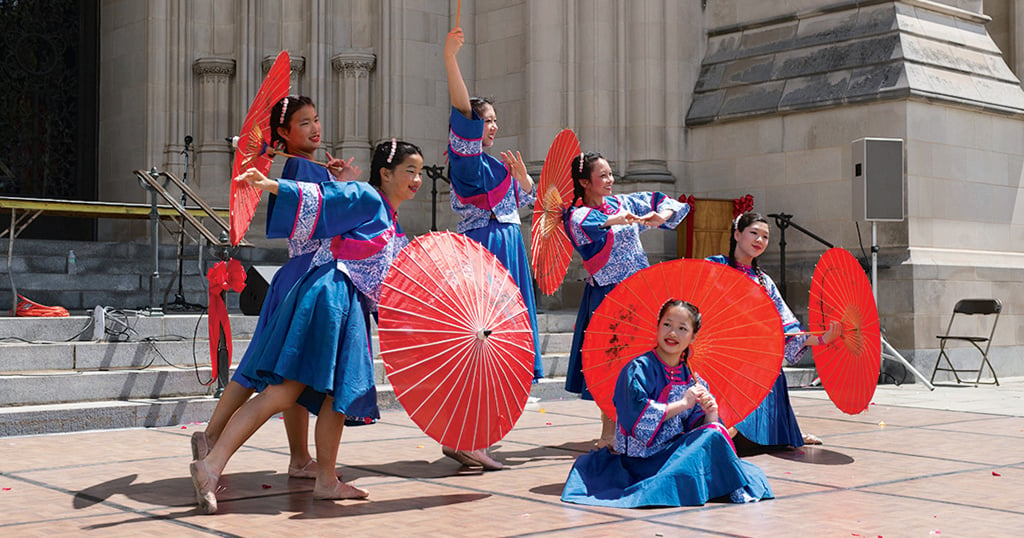
May is Asian American, Native Hawaiian, and Pacific Islander Heritage Month, and there are a number of area events marking the occasion. Check out these festivals, educational talks, performances, and more:
IlluminAsia Festival
May 10-12
location_on 1100 Jefferson Dr., SW
To commemorate AAPI Heritage Month, the National Museum of Asian Art is hosting three days of family-friendly arts and culture. This weekend’s IlluminAsia Festival will include an evening of wellness and meditation (guests can journal and make origami), a vendor market, an electronic music performance by artist/activist Madame Gandhi, and Mother’s Day-themed activities for kids (free).
“Good Fortunes” Open House
May 10
location_on Heurich House Museum
Asian American artist Xena Ni brings an interactive art installation to Heurich House Museum. “Good Fortunes” is the second installment of the We Should Talk series, which invites community members to join visionary Asian American women in imagining the future. You can explore the exhibit (and the biergarten) at the Dupont museum’s Friday open house. In the coming days, there will also be a charm-making craft event, and a lion dance celebration (free).
Howard County’s AAPI Festival
May 11
location_on Merriweather Park at Symphony Woods
Sample ice cream, shaved ice, poke, and barbecue from Asian food trucks at this AAPI Festival in Columbia, Maryland. The third annual community gathering spotlights dishes and cultural goods from up to 100 vendors and exhibitors (free).
AAPI Heritage Month Family Day
May 11
location_on Library Congress
May Family Day at the Library of Congress commemorates AAPI month with a mask-making workshop for children, and an author talk with Star Trek actor/activist George Takei about his book, My Lost Freedom: A Japanese American World War II Story ( free, but timed-entry pass required).
White House Forum on Asian Americans, Native Hawaiians, and Pacific Islanders
May 13
location_on Andrew W Mellon Auditorium
This daylong event marks the 25th anniversary of the creation of the White House Initiative and the President’s Advisory Commission on Asian Americans, Native Hawaiians, and Pacific Islanders. The “Lasting Legacies” schedule has yet to be released, but last year’s lineup included performances, panels, speeches, and informational sessions led by Vice President Kamala Harris, actor Daniel Dae Kim, poet Rupi Kaur, and more (free, but registration is required).
Fiesta Asia
May 18
location_on Pennsylvania Ave., NW, between Third and Sixth streets
The Passport DC festivities continue this month with Fiesta Asia. The celebration of pan-Asian heritage will include over 1,000 performers, food vendors, and artisans, plus kid-friendly activities, a talent competition, street dancing, and a colorful parade. The fair has been a popular tribute to Asian culture since 2006 (free).
Asian Festival on Main
May 19
location_on Main St., Fairfax
Take the entire family to this outdoor party in Old Town Fairfax City, which will feature dozens of food options, performances, and vendors, in addition to a cosplay costume contest, and an appearance by the Choy Wun Lion Dance Troupe (free).
Trivia Night: AANHPI Heritage Month
May 28
location_on Smithsonian National Portrait Gallery
Feeling competitive? Test your knowledge by yourself, or join a team, to answer questions and solve puzzles about Asian American, Native Hawaiian and Pacific Islander athletes, activists, entertainers, and engineers from the Portrait Gallery collections (free).
Asia on the Creek
June 1
location_on Carroll Creek Park
Visit downtown Frederick to experience traditional Asian art, dance, music, cuisine, and fashion, along with family-friendly activities, a vendor market, and live performances at Carroll Creek Park’s outdoor amphitheater (free).
Washington, D.C
Congressman Greg Murphy, M.D.: May updates from Eastern North Carolina and Washington, D.C. — Neuse News
Washington, D.C
Comer criticized for canceling DC mayor hearing following GWU encampment clearing – Washington Examiner

House Oversight Committee Chairman James Comer (R-KY) is receiving criticism after canceling a congressional hearing to explore Washington, D.C.’s response to George Washington University‘s pro-Palestinian student protests.
Comer announced the cancellation of the hearing on Wednesday following the clearing of the campus protesters by the Metropolitan Police Department earlier that morning. The demonstrations had been ongoing for 14 days and led to 33 arrests after the police gave six warnings for the students to disperse from the area.
Washington Mayor Muriel Bowser was set to testify alongside MPD Chief Pamela Smith on Capitol Hill on Wednesday.
“It was unfortunate the situation at GW forced the Oversight Committee to act; however it was apparent that the DC police force was not going to do their job,” Comer said in a statement. “Therefore, after meeting with GW leadership and touring the encampment, we decided to hold a public hearing to get answers as to why the Mayor would not uphold the law.”
He added, “I am pleased that the potential Oversight hearing led to swift action by Mayor Bowser and MPD Chief Smith. We will continue to hold D.C. officials accountable to ensure our nation’s capital is safe for all.”
Comer’s response received blowback from several Washingtonians seeking accountability and answers for why the protests were allowed to continue for a lengthy period of time on the GWU campus.
“Huh? Why was the hearing canceled? Why wouldn’t you drill down on why it took so long for Bowser to let the police clear GW out in the first place?” Washington radio host Vince Coglianese said in response to the hearing’s cancellation.
“Good grief. Letting her off the hook. What a disappointment!” radio personality Julie Gunlock said.
“Republicans are so feckless. What a farce of a government we have,” another social media user said.
“The GOP cancelled the hearing with the DC Mayor. How is that being held accountable?” another person asked.
One social media user reacted, “It took way too long!! Still needs to be held accountable for taking too long!”
A Florida congressman defended the House Oversight Committee’s efforts to pressure the mayor and police to act on the growing encampment on the campus, though.
“For days Hamas apologists illegally overtook GW & harassed/intimidated Jewish Americans. Mayor Bowser refused to clear them out. ONLY AFTER @GOPoversight met w/ GW leadership, toured the encampment & scheduled a hearing for today, did DC act. It NEVER should have come to this,” Rep. Byron Donalds (R-FL) said on Wednesday. Donalds had toured the student protest encampment first-hand last week.
CLICK HERE TO READ MORE FROM THE WASHINGTON EXAMINER
“It should not take an act of Congress for Mayor Bowser to do her job. Once again, @GOPOversight
and the @HouseGOP are GOVERNING where the Democrats have FAILED,” House Majority Whip Tom Emmer (R-MN) said.
“It shouldn’t have taken the threat of a Congressional hearing for DC Mayor Bowser to finally allow DC Police to respond to George Washington University’s call for them to clear the anti-Semitic and unlawful encampments. It should’ve been done on Day 1,” House Majority Leader Steve Scalise (R-LA) said in response to Comer’s hearing cancellation.
-

 World1 week ago
World1 week agoStrack-Zimmermann blasts von der Leyen's defence policy
-

 Politics1 week ago
Politics1 week agoStefanik hits special counsel Jack Smith with ethics complaint, accuses him of election meddling
-

 Politics1 week ago
Politics1 week agoThe White House has a new curator. Donna Hayashi Smith is the first Asian American to hold the post
-

 Politics1 week ago
Politics1 week agoDemocratic mayor joins Kentucky GOP lawmakers to celebrate state funding for Louisville
-

 World1 week ago
World1 week agoTurkish police arrest hundreds at Istanbul May Day protests
-

 News1 week ago
News1 week agoVideo: Police Arrest Columbia Protesters Occupying Hamilton Hall
-

 Politics1 week ago
Politics1 week agoNewsom, state officials silent on anti-Israel protests at UCLA
-

 News1 week ago
News1 week agoPolice enter UCLA anti-war encampment; Arizona repeals Civil War-era abortion ban


